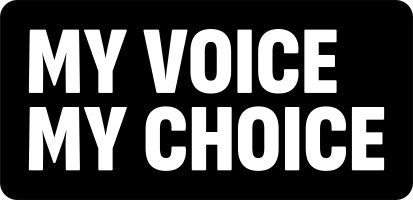The signature collection is done!
- jancictina18
- Apr 17, 2025
- 3 min read
“This is what happens when people across Europe unite for justice. We turned pain into action, fear into courage, and silence into 1.2 million voices demanding reproductive rights.”
Nika Kovač, campaign coordinator, My Voice, My Choice
A European movement for reproductive rights reaches a historic milestone amid rising threats
Twenty million women in Europe do not have access to safe and accessible abortion. In Poland, women have died in hospitals because doctors refused to provide abortion care under restrictive laws. In Malta, women face prison sentences for having an abortion. The right to choose is not a fringe issue — it is a widely supported and deeply rooted European value.
“This initiative is a declaration that enough is enough, that the EU must act,” said Nika Kovač, campaign coordinator of My Voice, My Choice. “No woman in Europe should fear death in a hospital bed or prosecution for making decisions about her own body. We are here to say: reproductive rights are human rights.”
With over 1.2 million signatures and national thresholds reached in 19 EU countries, the campaign is a defining moment in the fight for reproductive freedom across Europe.
1.2 million signatures for accessible abortion: a movement for reproductive rights
The My Voice, My Choice campaign brought together over 300 NGOs and more than 2,000 volunteers, who collected signatures in the streets of cities, towns, and villages across all EU member states. From university campuses to rural markets, citizens mobilized in extraordinary ways. Alongside this grassroots effort, the campaign built a powerful digital presence — using platforms like TikTok, Facebook, Instagram, and Blusky to engage the public and build momentum. Altogether, the campaign reached more than 65 million people online, connecting with individuals across generations and borders.
“People didn’t just click a button — they joined a movement,” said Veronika Povž, Director of Communications. “From people on the streets of Slovenia, grandmas in Germany, to students in Malta, we saw people standing up for each other, for dignity, and for the freedom to choose.”
The campaign also gained the support of all centre-left political groups in the European Parliament as well as individual support from different MEPs, the Vice President of the European Parliament Nicolae Ștefănuță, French senator Melanie Vogel, Slovenian President Nataša Pirc Musar, and Prime Minister Robert Golob.
Real help, not just words: a proposal for EU solidarity
At the heart of the My Voice, My Choice initiative is a bold and practical demand: the creation of a European financial mechanism that would support access to safe abortion care. The fund would help cover medical expenses, enabling women to receive care in EU countries where abortion is legal and accessible. This proposal transforms political values into tangible support, ensuring that no woman is left behind simply because of where she lives and her financial means.
“We’re not just fighting for a change of system — we’re fighting for real help,” said Alice Coffin, feminist activist and journalist. “This fund would mean that a woman in Malta, Poland, and from other places can get the care she needs, with dignity and without shame.”
Another example is coming from Czechia: “Abortion care in Czechia is not accessible — it can cost up to 30% of the minimum wage, and over 40% of hospitals won’t provide care to people without permanent residence,” said Diana Soták Gregorová from the Czech Women’s Lobby. “My Voice, My Choice is a chance to make abortion accessible for everyone.”
To this, Croatian singer Severina added: “We want every woman in the European Union to have the right to an accessible and free abortion. Nothing less and nothing more.”
A Movement, Not Just a Campaign: What Comes Next
With signatures now collected, the initiative enters a new phase: national verification of signatures in the next 3 months, official submission to the European Commission in September, followed by a meeting with the Commission, a hearing in the European Parliament and an official reply from the Commission that will tell if the EU will take action on the initiative. The process could lead to new EU legislation to support reproductive rights — a historic first. Nicolae Ștefănuță, Vice-President of the European Parliament, is committed to continuing his support for this vital cause. “The voices of the 1.2 million Europeans who signed this initiative must be heard,” he affirmed.
Advocates across the continent are preparing to continue the fight at the institutional level, urging EU leaders to act on the will of more than a million citizens.



